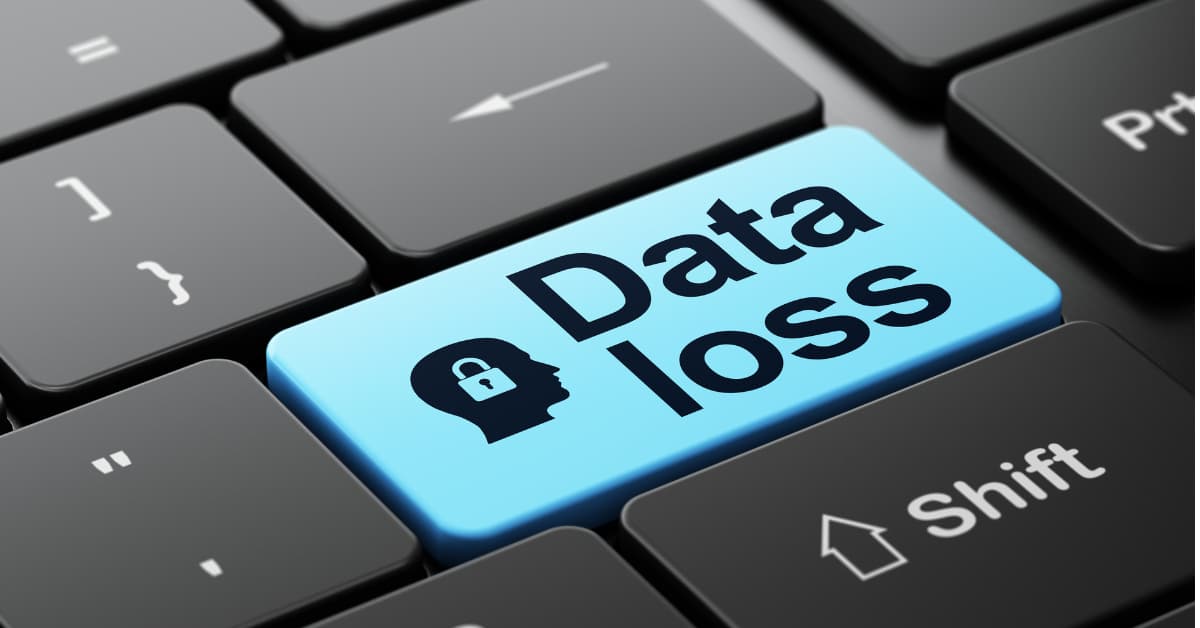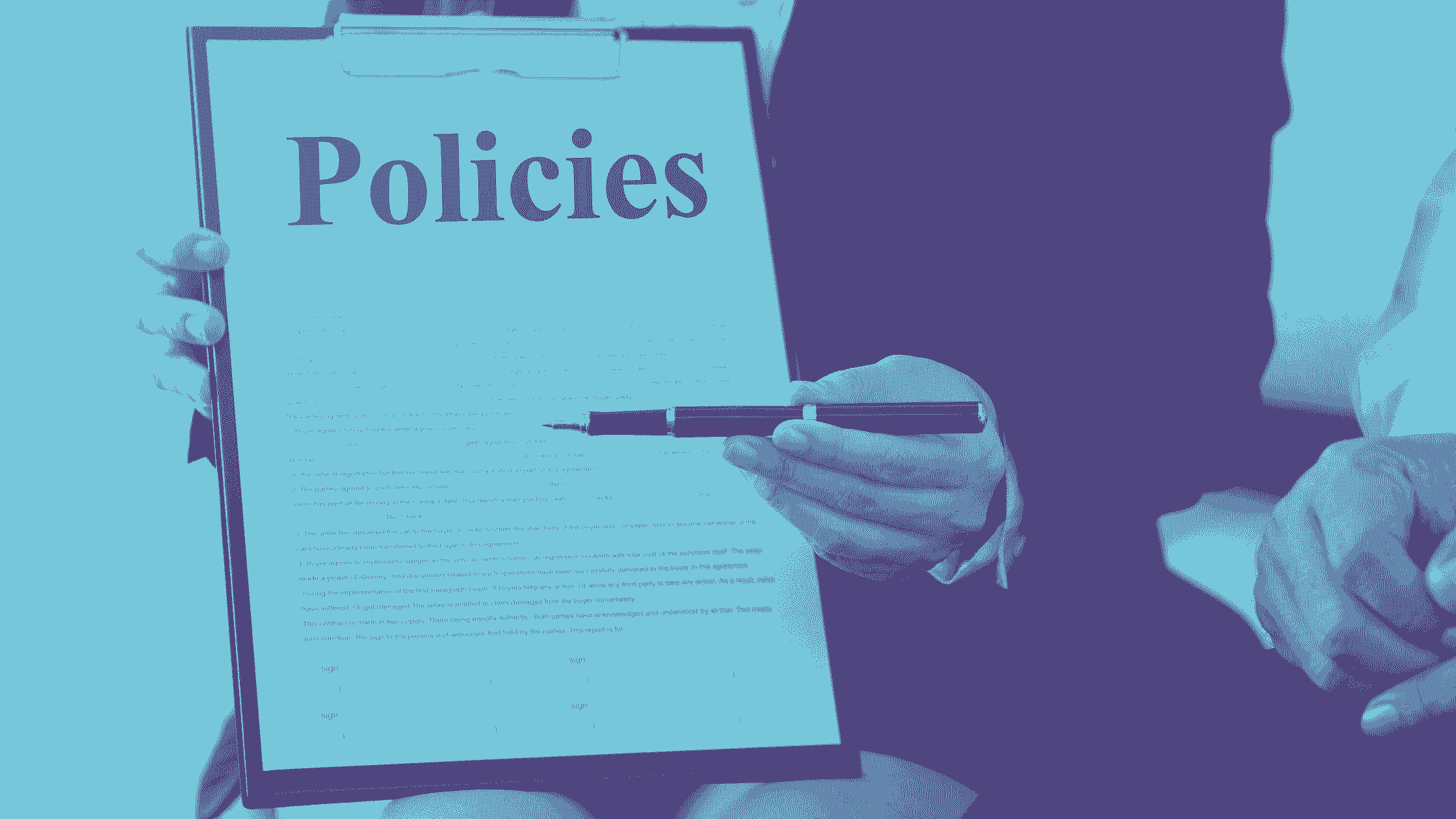Data Loss Prevention: Essential Guide to Protecting Your Business
Every morning, I check the cybersecurity incident reports from across Canada. The pattern is always the same - another business discovering they've...
6 min read
 GAM Tech Team
:
Feb 27, 2023 9:39:20 AM
GAM Tech Team
:
Feb 27, 2023 9:39:20 AM

Small businesses today depend on data more than ever. Client records, payment information, financials, proprietary processes, and more. But with increased reliance on digital tools comes greater risk. Without strong cybersecurity measures in place, data loss isn't just inconvenient; it can be devastating.
Whether from human error, cyberattacks, or insider threats, data breaches can cost businesses money, trust, and even their ability to stay open. In fact, nearly half of all data breaches affect small businesses, and many never fully recover.
That's why Data Loss Prevention (DLP) isn't optional. It's essential.
In this guide, we'll explain what DLP is, why it matters for small businesses, common threats to your data, and practical ways to protect your organization moving forward.
Key Insights
Small businesses are high-risk targets. Nearly half of all data breaches affect small businesses, many of which lack robust cybersecurity measures.
Data Loss Prevention (DLP) is essential. A proper DLP strategy helps safeguard sensitive data like financial records, customer info, and intellectual property.
Human error is a leading cause of breaches. Most data loss incidents stem from employee mistakes rather than advanced hacking techniques.
DLP combines tools and policies. From encryption and access controls to employee training and monitoring tools, a layered approach is the most effective.
Recovery is costly-prevention is smarter. The financial and reputational impact of a data breach can be devastating. Proactive prevention costs far less than reacting to a breach.
Data Loss Prevention (DLP) refers to strategies and tools used to detect and prevent unauthorized sharing, access, or loss of sensitive data, whether it's stored on devices, in the cloud, or in transit. DLP solutions monitor where data is stored, how it's accessed, and how it moves, applying policies that block risky actions before they lead to leaks or breaches.
Small businesses use DLP to protect sensitive data like:
Personally identifiable information (PII)
Customer payment info
Financial records
Intellectual property
Internal business strategies
Small businesses are frequent targets for cybercriminals precisely because they often have fewer protections in place. Unlike large enterprises with dedicated IT teams, small companies typically rely on basic defenses or third-party providers leaving more opportunities for attackers to exploit.
Without a DLP strategy, even something as small as a stolen phone, misplaced USB drive, or a careless email can result in a serious data breach.
Here’s why DLP matters:
Limited IT resources mean small businesses may not catch threats early, and recovering from data disasters can take longer without dedicated cybersecurity professionals.
Recovery costs from breaches can be overwhelming. Lost revenue, legal fees, and reputational damage can quickly drain a small business’s resources.
Legal penalties for failing to protect sensitive data—especially client or financial information—can be severe under regulations like GDPR, HIPAA, or local privacy laws.
Customer trust is difficult to regain after a breach. If clients feel their information isn’t safe with you, they’ll take their business elsewhere.
With a solid DLP plan in place, your business can detect vulnerabilities before they become disasters and protect your data without slowing down operations. It's about reducing risk, staying compliant, and giving your customers confidence in your ability to protect their information.
Even with the best intentions, many small businesses fall victim to data loss due to avoidable, day-to-day vulnerabilities. Understanding these common causes is the first step in reducing your risk.
From emailing the wrong person to saving files on unsecured devices, mistakes happen, and often. Employees might click on a malicious link, upload sensitive data to the wrong cloud folder, or forget to password-protect confidential files. These seemingly small missteps can open the door to major security incidents. Since most data breaches originate from user behavior, employee awareness and process control are key.
Hackers don’t just go after big corporations. In fact, small businesses are often easier targets. Phishing emails, ransomware, and malware are among the most common tools used to gain unauthorized access. Once in, attackers can encrypt data, demand payment, or steal valuable information like customer lists or credit card details. Defending against cyber attacks means putting strong safeguards in place before threats strike—not after.
Not every threat comes from outside your organization. A disgruntled employee or even a trusted contractor with too much access can expose or misuse sensitive information. Insider threats can also come from negligence such as using personal devices without proper security protocols or sharing passwords between employees.
Many small businesses still store critical files on personal laptops, USB drives, or public cloud services without encryption. This makes it easy for cybercriminals to access confidential data. If you don’t know where your data lives or who has access to it, you’re already at risk.
Data Loss Prevention isn’t just a buzzword, it’s a proactive and strategic approach to data security. DLP solutions are designed to prevent problems before they happen, keeping your business running smoothly and securely.
Know where your sensitive data resides, how it's used, and who is accessing it. DLP tools provide real-time insights into data activity across endpoints, cloud environments, and networks, helping you identify anomalies and potential threats before they escalate.
Create rules that automatically restrict how sensitive data can be shared. For example, you can block employees from emailing customer data outside the company or uploading confidential files to unapproved platforms. These policies ensure your team operates within secure boundaries without having to remember every rule.
Meeting industry regulations is non-negotiable for many businesses. DLP helps you comply with laws like GDPR, HIPAA, and PCI-DSS by enforcing access controls, maintaining audit trails, and generating reports for compliance checks. Failing to comply could mean fines, lawsuits, or revoked licenses.
With DLP in place, you reduce the risk of internal misuse, external attacks, and accidental data leaks. You can detect suspicious activity—like large file transfers or repeated failed login attempts—and respond quickly before damage is done.
Knowing your data is actively monitored and protected means you can focus on growing your business instead of worrying about what could go wrong. DLP gives you and your team the confidence to operate securely and efficiently.
Implementing a DLP strategy doesn’t have to be overwhelming. With the right tools and mindset, small businesses can create a strong defense against data loss. Start with these best practices:
Data encryption scrambles information into unreadable text unless the user has the correct key. This protects data both at rest (stored files) and in transit (such as emails or cloud uploads). Even if hackers manage to access your files, data encryption ensures they can’t read or misuse the information.
Not all employees need access to every file or system. Use role-based access to grant users only the permissions they need. This minimizes the risk of both accidental and intentional misuse of data.
Teach your team how to spot phishing attempts, create strong passwords, and use secure sharing methods. Consider quarterly training or phishing simulations to keep security top of mind. Empowering employees with knowledge is one of the most cost-effective defenses.
Data backups are your insurance policy. Set up automatic, encrypted backups stored offsite or in the cloud. If your business is hit with ransomware or hardware failure, backups allow you to restore data quickly and avoid devastating downtime.
Your team uses laptops, mobile phones, and removable drives every day. Endpoint DLP tools track how sensitive data is accessed and transferred on these devices and can restrict risky behavior—like copying client data to a USB drive.
Install network monitoring tools that alert you to unusual patterns, such as large file downloads after hours or logins from unfamiliar locations. Early detection gives you the chance to stop a breach before it causes harm.
Cybercriminals often exploit known vulnerabilities in outdated software. Regular updates and patch management close these gaps and keep your systems secure. Make updates a routine part of your operations, not an afterthought.
Small businesses don't have the luxury of taking data security lightly. Whether you store client records, employee information, or proprietary processes, your business has data worth protecting.
By implementing a DLP solution and following best practices-from encryption and employee training to regular backups-you're building a stronger, more secure foundation for your company.
And if managing all this feels overwhelming, you don't have to go it alone. At GAM Tech, we specialize in helping small businesses secure their operations with reliable, responsive IT solutions that include comprehensive data loss prevention.
Let's talk about how we can help you stay protected and grow with confidence. Book a consultation today.
DLP is a set of tools and strategies that protect sensitive business data from being lost, stolen, or accidentally shared with unauthorized parties.
You can protect against data loss by implementing DLP software, encrypting sensitive information, limiting access permissions, training employees on cybersecurity best practices, and regularly backing up your data.
Endpoint DLP monitors and controls the use of sensitive data on endpoint devices like laptops, USB drives, and mobile phones. It helps prevent data leaks caused by lost or misused devices.
Prevent data loss by using a combination of DLP tools, strong access controls, secure backups, employee education, and regular system updates.
Small businesses are frequent targets of cyberattacks and have fewer resources to recover. A DLP strategy protects their reputation, operations, and ability to comply with regulations.

Every morning, I check the cybersecurity incident reports from across Canada. The pattern is always the same - another business discovering they've...

IT security policies are documented rules defining how organizations protect data, manage access, and ensure compliance. They establish employee...